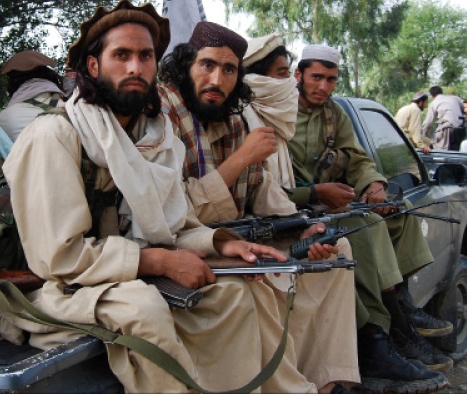
The Cambridge dictionary defines culture as ‘a way of life, especially the general customs and beliefs, of a particular group of people at a particular time’.
A couple of definitions of politics, on the other hand, are, ‘the study of the ways in which a country is governed’, or ‘someone’s opinions about how a country should be governed’ etc.
In other words, culture and politics are closely intertwined. If culture can be said to be ‘a way of life’, then the political culture of a nation shall define how the country is governed and what kind of way of life is acceptable to the people of the nation, or the society in general.
How is culture formed? Does it evolve? What role does politics have in its evolution? Yes, culture evolves and changes over time, and is by definition, a dynamic entity. If we limit ourselves to the analysis of a nation as an entity, the contours of how any nation should be governed, is arrived at by a political process. India, as a nation, is, for example, a constitutional democracy.
The reasons behind why it evolved into a constitutional democracy and not a totalitarian state, for example, are also varied. One major reason may have been the long and arduous freedom struggle our nation had to go through, which deeply entrenched anti-imperial ideologies in the mindsets of the people. Another reason may have been the participatory nature of the freedom struggle, as it was achieved through mass participation, thus establishing the masses as equal stakeholders in the independent nation.
Thirdly, the ideas and the personalities of the principal architects of the freedom struggle and their strong beliefs in the democratic principles may have had a significant role to play. These beliefs, may, in turn, may have been effected by the ideological currents prevalent throughout the world at the time. Whatever the case, the intertwined nature of culture and politics is clearly apparent. Both deeply effect, and are, in turn, effected by each-other.
Having established itself as a constitutional democracy, the people of this nation, agreed to be governed by the Constitution. The Preamble of the Constitution is a reflection of the spirit of the Constitution. The principles enshrined in the Preamble reflect the core ideas that were and have been considered as forming the soul of this nation – ideas like democracy, socialism, secularism, fraternity, justice and equality. However, it is important to understand here, that the Constitution has also not been designed to be a static document.
The scope for its evolution and change has been envisaged in its design itself. Having said that, sufficient guarantees have been included so that a drastic revision of its core principles will not be possible without a vast majority of the people of this nation wanting to do it. So, for example, no government in power can suddenly decide that the nation shall cease to be a democracy, or shall refuse to believe in secularism and, and hope to succeed in implementing its decision fairly and smoothly, that too for a prolonged period of time. Such major deviations from core values and principles will have to be met with stiff resistance and will always be in the danger of being overturned, thus not being able to sustain themselves for long.
A sustainable shift away from the core values of a nation shall require a cultural shift to be brought about. For better understanding, let us discuss in context of the two core values – that of democracy and secularism. Even if these values had not been acknowledged and legitimized through the Constitution, they have been entrenched in the minds of the people of this nation since long. Secularism – respect for and co-existence of all religions – has been the hallmark of the Indian civilization itself. The struggle for freedom, on the other hand, deeply entrenched the value of democracy in the Indian minds. The recognition and formal acceptance of these two values through the Constitution, only helped in deepening these beliefs further and providing them a legal sanctity. Now, what shall it take for the majority of the people of this nation to move away from these values? It shall of-course take sustained effort, considerable time and exposure to a particular kind of ideology and thoughts that paint these values as useless and even dangerous for the majority. For this, It will also require that the masses be actively discouraged from developing their critical thinking abilities and from questioning. It will require for the masses to not be aware and to not even seek or desire to gain awareness.
How does an individual develop critical thinking abilities? He/she has to be actively encouraged to develop a spirit of enquiry, to find out things, to read and to discuss. If, however, it is desired that the masses should not be able to think independently, all the steps will be taken to thwart the development of a spirit of enquiry, to delegitimize the act of questioning, to criminalize dissent and to actively discourage people from reading.
A certain section of the Indian society is desirous of bring about this cultural shift away from the core values on which the Indian nation and civilization rests. The efforts have been intensified in the past few years on the back of the political power acquired by these sections. However, the fundamentals of the nation are so deeply entrenched that realizing the dream of bringing about a cultural shift may still be a fairly distant one. In the meantime, however, it is essential that steps towards bringing about a different variety of cultural shift be initiated and strengthened.
A cultural shift toward not treating ‘awareness’ as optional and not categorizing ‘reading’ as ‘hobby’ but making them the very foundations for a much needed sane and argumentative social space.
Being aware, questioning and thinking critically are inherent to human existence. Human beings have an ability to think and to use their minds. The reason for having been given this ability is to be able to use it in the first place. Thus, thinking cannot be optional. And for being able to critically think and reflect, reading and discussing are essential requirements. It is high time that this cultural shift towards the necessity of ‘being aware’ be brought about, and fast enough, lest we have to regret when it gets too late.
Nivedita Dwivedi is an Independent Writer. She is working in the field of education and—based in Mumbai.













